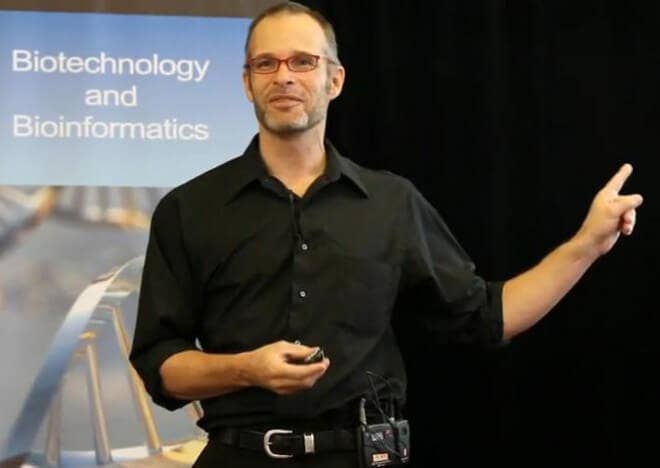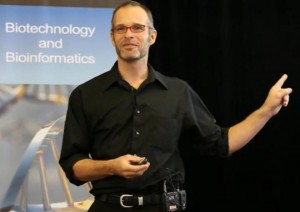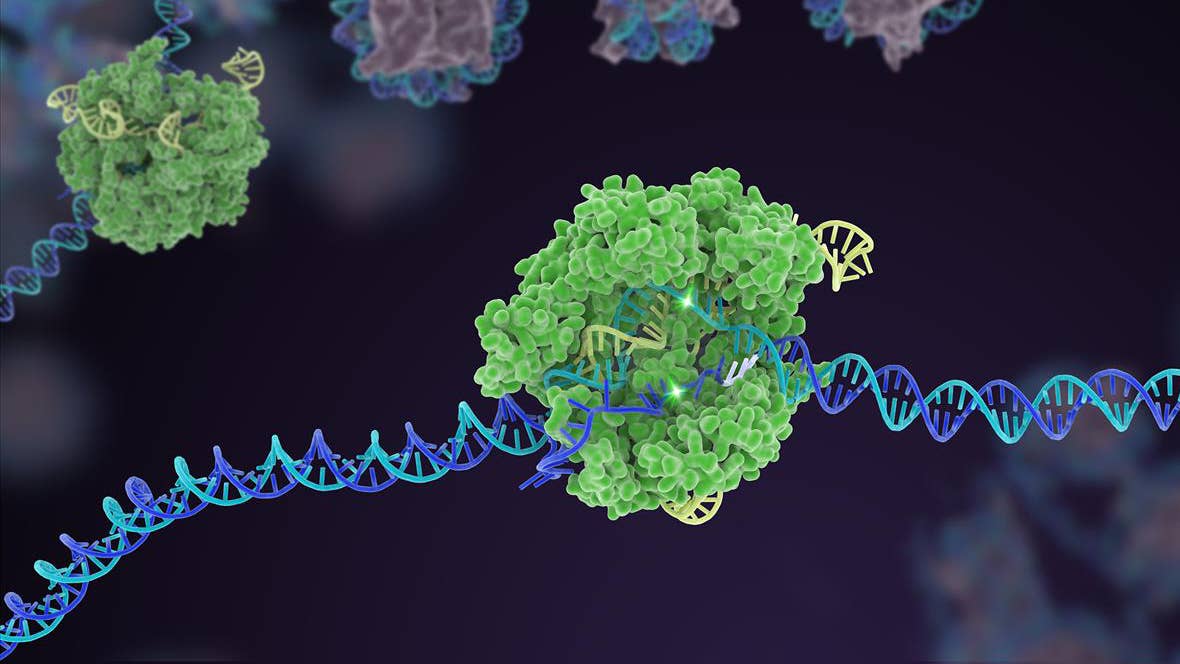Andrew Hessel’s Singularity University Talk on Synthetic Biology (Video)

Share

Have you ever wished life was more like a video game? Well, Andrew Hessel is here to tell you that your biology is already more like a computer than you know. At his recent talk at Singularity University the genetic engineering guru explained how biology was set to become the next information technology. Hessel is a veteran of the biotech industry, an advocate for open source technology, and one of the founders of the biology wiki, OpenWetWare. His presentation at Singularity University starts from scratch, describing the basics of synthetic bio and explaining how we could one day have "push button biology" - you design an organism, push a button, and out it comes. Check out the video presentation of "Hacking Genomes and Synthetic Biology" in full after the break.
Hessel is a big proponent of open source technology, which you can see in his founding of OpenWetWare, his support of DIYbio, and his ongoing interest and support of iGEM and MIT's Registry of Standard Biological Parts. The man wants you to be interested and open to the possibilities that hacking DNA will provide. Synthetic biology, the engineering of life on the genetic level, could be the definitive technology of the 21st century. Educational genetic engineering (like iGEM) is beginning to filter into the high school level and Hessel believes that a time is coming soon when everyone could have access to the power and creative freedom of synthetic biology. When? Everyone has a different idea about the timing of the coming paradigm shift, but Hessel targets genetic sequencing as a key ingredient. When you can sequence 10 million base pairs in an hour for $100, he thinks that the genetic revolution will begin. That's the point when it will become cheap enough for almost anyone to start programming with DNA.
Don't have time for an hour long video? Check out the highlight reel below.
Be Part of the Future
Sign up to receive top stories about groundbreaking technologies and visionary thinkers from SingularityHub.


3:00 - Summary of synthetic biology as information technology.
9:19 - The History of Cells (as IT)
15:30 - The hockey-stick growth of known genetic information (GEN BANK)
17:00 - The number of species may experience its own hockey-stick growth curve.
19:40 - Writing genetic code
21:15 - The importance of DNA printers.
22:20 - DNA programming as a language.
24:00 - iGEM
25:00 - Registry of Standard Biological Parts.
26:00 - Synthetic biology enters high school, and do-it-yourself.
27:35 - Human genome synthesis is coming!
30:00 - End of talk, beginning of questions
30:10 Question#1 - Isn't synthetic biology scary? What are the dangers of biological attacks?
31:45 - Q#2 - Are there any defenses against bio-terrorism?
33:30 - Q#3 - Peter Diamandis asks if future robots will be mechanical or biological.
37:00 - Q#4 - What are the ethics of using a living thing as a machine?
39:20 - Q#5 - Will the divide between humans and animals grow wider as we program life?
42:12 - Q#6 - Are there competitions in code standards (as there are with IT)?
43:37 - Q#7 - Would Darwin like synthetic biology?
44:00 - Q#8 - What will the biological lab of the future look like?
45:00 - Q#9 - Is synthetic biology going to be patented?
45:40 - Q#10 - How do you write code when it could mutate?
47:00 - Q#11 - Are we going to bring back dinosaurs?
48:15 - Q#12 - What impact will this have on forensic uses of DNA?
51:00 - Q#13 - How will security concerns affect growth of industry?
54:00 - Q#14 - Is there any limit to what synthetic biology can make?
55:30 - Q#15 - What's the risk analysis with DNA printing?
Stay tuned to the Hub for more news about Singularity University and videos of their unique presentations. And check out SU's twitter feed to keep up to date on everything going on in the program.
*Disclosure: Keith Kleiner (owner of Singularity Hub) is an associate founder at Singularity University.
[photo credit: Wired]
[video credit: Singularity University]
Related Articles

What the Rise of AI Scientists May Mean for Human Research

Souped-Up CRISPR Gene Editor Replicates and Spreads Like a Virus

Your Genes Determine How Long You’ll Live Far More Than Previously Thought
What we’re reading